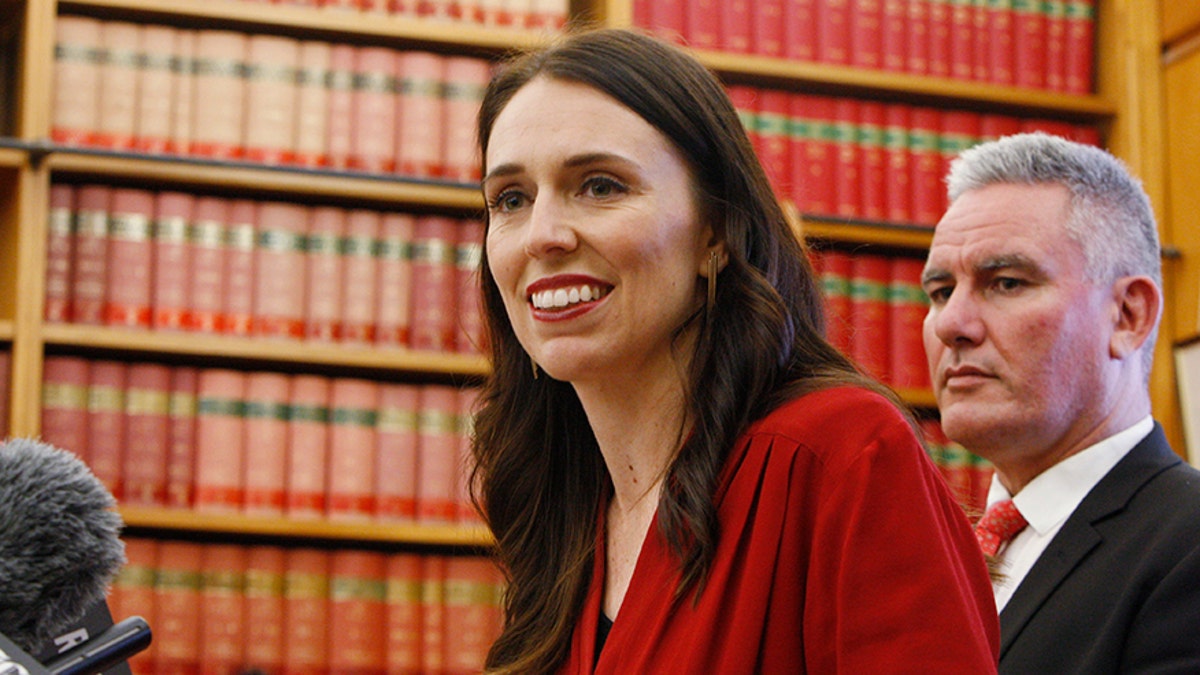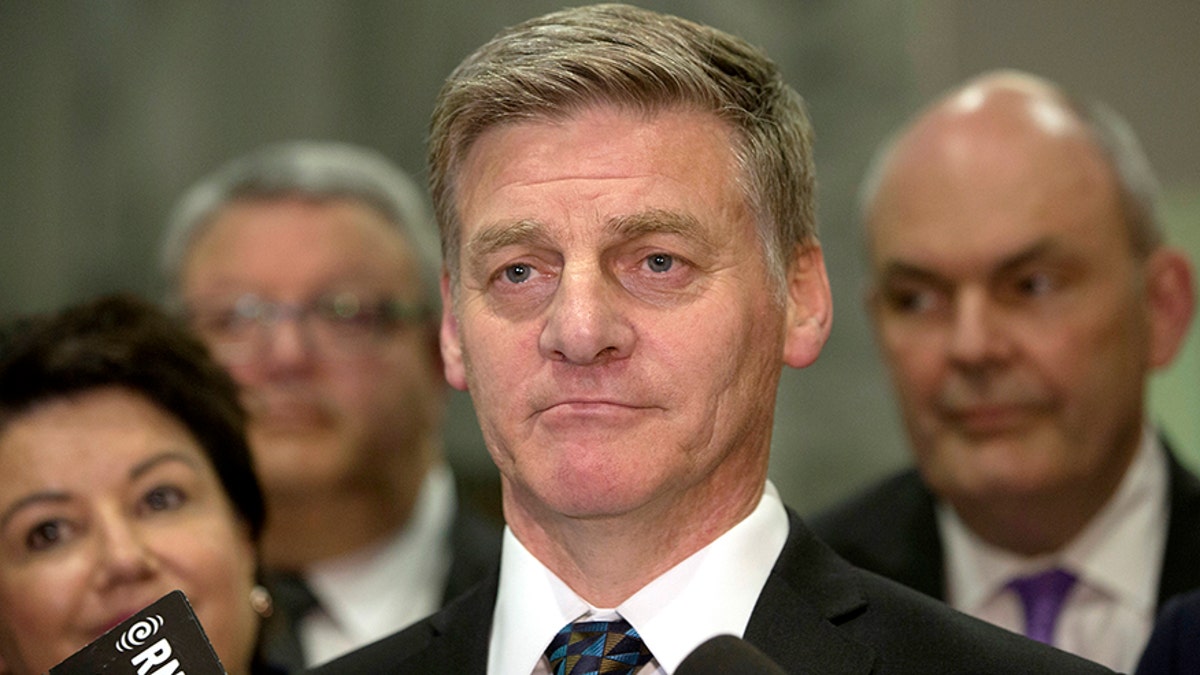
Jacinda Ardern will be New Zealand's second youngest prime minister and the country's third female leader. (AP Photo)
At 37 years old, Jacinda Ardern was elected to become New Zealand’s youngest prime minister since the 1850s.
Ardern, who made history just months ago by becoming the country’s youngest Labour leader, said it’s an “absolute honor and privilege” to lead the country. She will be the country’s third female leader in its history.
On Thursday, a coalition with the small New Zealand First party helped clear her way and surpass outgoing Prime Minister Bill English. Support of New Zealand First, a populist party, was critical because no single party secured a majority during last month’s national election.
"That's a fairly remarkable performance given that just 10 or 12 weeks ago she was the deputy leader of a failing opposition,” said an emotional English, who added he'd left New Zealand in good shape and that the country has plenty of opportunities ahead.

Outgoing New Zealand Prime Minister Bill English said Jacinda Ardern's rise to power was a "fairly remarkable performance." (AP Photo)
Ardern's rise to the prime minister started in July when she took over leadership of her liberal Labour Party. She had been a member of the party since she was 17.
In her rise to power, Ardern has defied the norms of the country’s politics and even refused to answer questions on whether she has considered having children – she says no male politician would be forced to do the same. She has been compared to other young, charismatic leaders such as Canada’s Justin Trudeau and French President Emmanuel Macron.
Ardern hopes to take the country on a more liberal path following nine years of rule by the conservatives.
New Zealanders have been waiting since the Sept. 23 election to find out who will govern the country after the voting ended without a clear winner.
Ardern wants to curb immigration, ban foreign speculators from buying homes and build thousands more affordable houses. She also wants to spend more money on health care and education, and clean up polluted waterways.
Ardern said she wanted to lead a government that looked after the environment and the country's most vulnerable people.
New Zealand First leader Winston Peters said his party's choice was either "a modified status quo" with the incumbent conservatives or an option for change.
The liberal Green Party will support the coalition but won't be a part of the government's policy-setting Cabinet. The Green Party ratified the deal late Thursday.
New Zealand First is expected to extract policy concessions and win some ministerial posts by joining the Labour coalition. Ardern said the details would be released in the coming days.
Under New Zealand's proportional voting system, larger parties must typically form alliances with smaller parties to govern.
A government needs at least 61 seats to hold a majority in the 120-seat parliament. National won 56 seats, Labour won 46, New Zealand First won nine seats and the Green Party won eight.
The Associated Press contributed to this report.
